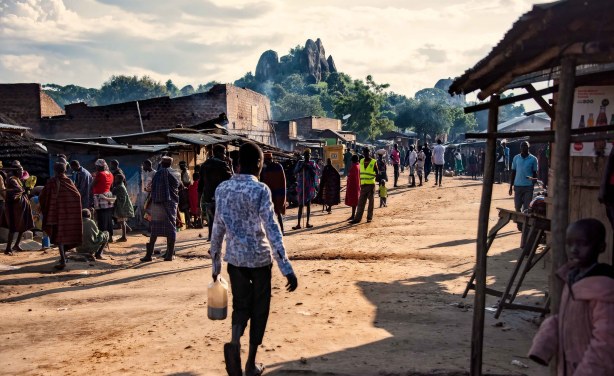-
Uganda: Where Crops Grow, but Children Go Hungry
Global Press Journal, 9 January 2023
People have feared to go to their far-flung fields because of a resurgence in violent raids. Now, there's a severe shortage of food. Read more »
-
Africa: Food Is Scarce These Days, and the Refugees Keep Coming
Global Press Journal, 20 October 2022
At Africa's oldest refugee settlement, cuts to monthly stipends lead to hunger -- and conflicts with Ugandan farmers. Read more »
-
Uganda: Slow Food, Accelerating Biodiversity in the Field and On Our Plates
IPS, 2 August 2022
Edward Mukiibi was forced to do agriculture at school as punishment for misbehaviour. Read more »
Conflict Brings Fewer Ugandan Crops - Children, Refugees Suffer
For the past two years, the people of Uganda's Karamoja region have not been able to grow enough food because violence that had ended with a government-led disarmament more than 15 years ago has returned, write Patricia Lindrio and Nakisanze Segawa for Global Press Journal.
Between March and July 2022, 518,000 people in Karamoja experienced severe food shortage, including more than 91,000 children who were severely malnourished and 9,500 pregnant women who needed treatment because they did not have enough to eat, according to an analysis by Integrated Food Security Phase Classification, an organization that provides policymakers with research about food security.
Similarly, the nation's food security is an additional crisis for refugees from DR Congo. This follows a budget shortfall at the World Food Programme that forced the United Nations agency to slash a significant amount from the monthly cash stipend it gives refugees in western Uganda to cover the cost of food and other living expenses.
InFocus
-
The Intergovernmental Authority on Development (IGAD) is a trade bloc consisting of eight countries. These include Great Lakes countries; Kenya and Uganda, Horn of Africa ... Read more »
-
Ghana and Uganda are among a slew of African countries banning the export of grains and other farm produce with the latter imposing high taxes to prevent food exports to ... Read more »




